Communities of Practice Fellowship @ WKU
Inaugural Community of Practice
Diversity, Equity, and Inclusion in Teaching
Communities of Practice Purpose
WKU’s Communities of Practice provide an opportunity for select 5-6 faculty and staff who teach consistently/extensively to come together on a regular basis to discuss topics of strategic relevance to the institution, to deepen their knowledge and expertise on a given topic, and provide guidance and professional development to the wider WKU teaching community. Communities of Practice are an investment in teaching and research excellence. Communities of Practice are sponsored by the Provost’s Office and CITL.
Communities of Practice offers opportunities to:
- Connect faculty members from multiple disciplines.
- Stimulate learning via communication, mentoring and self-reflection.
- Compile and disseminate existing knowledge to promote best practices.
- Organize purposeful actions with measurable results.
Meet our CITL Fellows
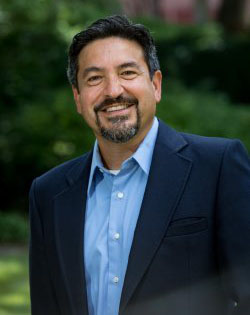
Fabián Álvarez
English – Instructor II
Underrepresented minorities have different obstacles and struggles than their non-URM peers, but they also have so much in common with them. Understanding these similarities and differences matters because it affects (or should affect) what we do both inside and outside the classroom. We can equip faculty with best practices for meeting the needs of underrepresented minorities and instill in our colleagues a confidence that they can make a difference in their students’ lives in very meaningful ways.
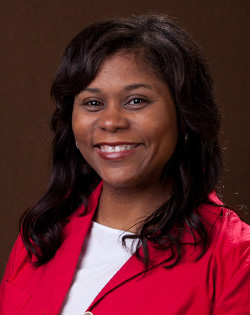
Monica Burke
Professor, Clinical Coordinator for Student Affairs in Higher Education, SAGA Faculty Co-Advisor
As a CITL Community of Practice Fellow, my aim is to be a part of a shared network to develop strategies, resources, and activities that the campus community can use to incorporate diversity, equity and inclusion into teaching and learning. I also intend to engage in collaborative research to increase our understanding of diversity, equity, and inclusion on campus that will aid in establishing priorities and informing institutional policy.
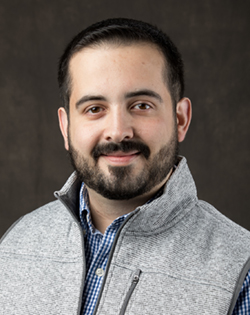
Nicholas Fortune
Math – Assistant Professor
As a CITL Communities of Practice Fellow, I will support and advocate for faculty and staff as they endeavor to incorporate inclusive pedagogical practices – practices that are of paramount importance in today’s society. Education research is clear on this: to be truly diverse, equitable, and inclusive educators, we must reform the systems and structures in place that support (and are supported by) discriminatory policies. My central goal by being part of this Fellowship is to simultaneously reform those systems and structures while supporting faculty and staff on an individual level.
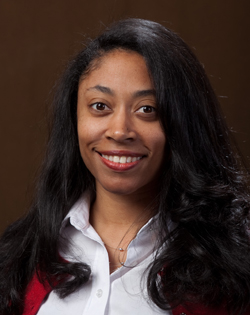
Kimberly Green
Assistant Professor and CHHS DEI Committee Chair
Higher education is one of the most fertile environments in which to foster and embrace diversity, equity, and inclusion. As a CITL Community of Practice Fellow, I hope to contribute to supporting and enhancing cultural competence across the Hilltopper community. I would like to develop practical resources and outlets that can be accessed throughout the university with a focus on pedagogy, mentorship, and student engagement.
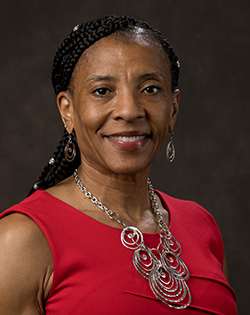
Michelle Jones
Math – Pedagogical Associate Professor
As a CITL Community of Practice Fellow, I hope to be able to help faculty appreciate the concept of inclusive teaching and develop a willingness to incorporate a variety of approaches to satisfy the diverse needs of the students we serve. I hope to help cultivate a large culture of inclusive excellence in an environment where people feel safe, comfortable, and empowered to discuss diversity and inclusion. I hope to grow and help others experience personal and professional growth while engaging in new collaborations, initiatives, and/or partnerships within the campus community.
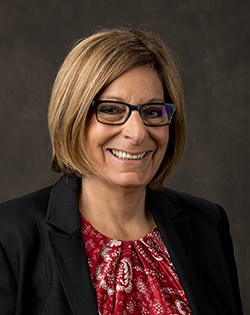
Gayle Mallinger
Social Work – Associate Professor
With its focus on student equity across difference, inclusive pedagogy invites faculty to examine how we choose content and deliver information. As a Community of Practice fellow, I plan to examine inclusivity in assigned content, activities, and assessment across campus.
Benefits, Expectations, & Timetable
- Fellows become members of a community of peers with shared interests in teaching and learning at WKU.
- The community provides an inclusive space where fellows share experiences, ideas and strategies about teaching, experiment with evidence-based practices, build skills, engage in research, and reflect on their roles as educators.
- Each fellow is awarded a stipend of $2,500 for each semester, for up to three years. The team leader(s) [those who have expertise in the field and knowledge of the scholarship] will earn an additional $1,000 per year.
- Yearly renewals will be decided on (with expectations clearly identified) by the CITL Advisory Board.
- Communities of Practice fellowships will be renewable for up to 3 years.
- Each community will be given a $1,000 budget to be used as the fellows determine will best meet the needs of the group (i.e., books, supplies, lunches, etc.).
- Fellows should expect to spend approximately 50 hours a semester on the work associated with the Community of Practice.
- Communities of Practice fellows will actively prepare for, attend, and participate in community meetings. Communities of Practice will likely meet once or twice a month, depending on the group and its goals. The semester schedule will be set during the first meeting.
- Communities of Practice fellows will provide some sort of deliverable each semester that can be shared with a larger audience. For instance, the participants can design and deliver PD opportunities through presentations, seminars, webinars, and professional learning communities and/or provide instructional resource materials (instructional tools, teaching strategies, videos, presentational materials, etc.) on the CITL website.
- Continuance as fellow will be based on the quality of contributions at the end of the year.
- The fellows will submit an executive summary and reflective analysis of their community of practice activities by June 15 of each year.
- Communities of Practice Fellows will also be expected to share their learning, activities, and reflections at WKU’s Student Success Summit.
Year 1
- Establish goals, outcomes, and assessment plans for the community of practice.
- Research, read, and analyze the most relevant and recent scholarship on topic.
- Begin to develop campus-wide partnerships to elevate the visibility and increase the reach of the community of practice.
- Discuss and pilot the first programs/projects.
- Plan for year 2 based on results of year 1.
- Submit evaluation of year 1 activities.
Year 2
- Fully develop, schedule, and implement programming related to community of practice objectives.
- Create programs that involve the active and meaningful participation of individuals and groups on campus.
- Submit evaluation/assessment of year 2 activities.
Year 3
- Continue to deepen existing campus partnerships and/or create new ones.
- Organize, implement, collect data on, and assess programming for year 3.
- Decide on whether to continue community of practice.
Some of the links on this page may require additional software to view.

